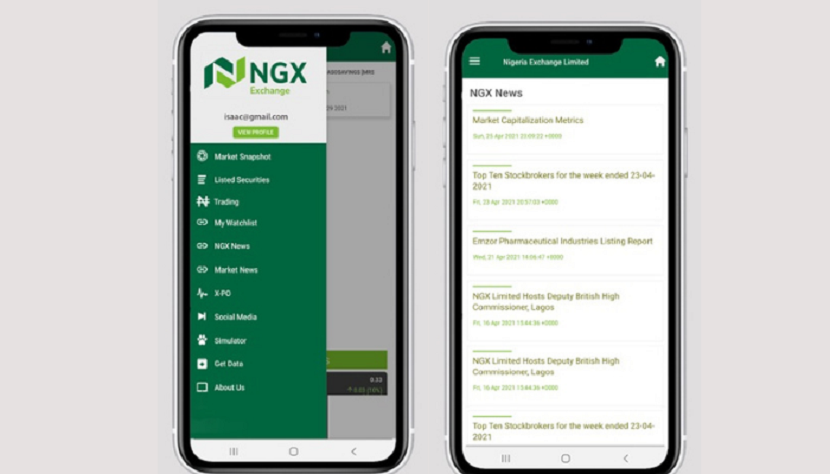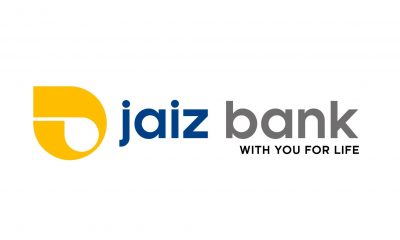Economy
NGX Modifies Mobile App X-Mobile for Better Efficiency

By Sodeinde Temidayo David
Nigerian Exchange (NGX) Limited has released an improved version of its mobile app, X-Mobile, to enhance investors’ participation and access to the Nigerian capital market.
The X-mobile, a dynamic and user-friendly mobile app, which was first launched in 2019 in a beta state, now accessible on various mobile stores, provides market participants, especially retail investors with convenient, faster and real-time access to information about NGX, its listed securities and trading license holders.
According to the NGX, some of the key features of the X-Mobile include market news feed, snapshots and analytics, securities prices, financial and market news, including a trade engine simulator where users can learn or improve on their trading proficiency, using virtual currency.
It provides a directory of NGX authorised stockbrokers as well as aggregated access to their online and mobile trading apps.
With the app enhancement, users can create personalized watch lists to keep track of chosen securities, eradicating the need to access multiple information sources.
Also, the newly updated app features the latest statistics about the Nigerian exchange and serve as a personal companion on the NGX.
The new development is set to be well suited for investors who want to keep tabs with the NGX as well as prospective investors who want to learn about the exchange and how to get involved.
Speaking on the development, the Chief Executive Officer, NGX, Mr Temi Popoola, commended the hard work of the teams and individuals who have successfully driven the completion of the mobile app since its first launch.
“The delivery of X-Mobile is in line with NGX’s strategic intent to provide an exchange that is easily accessible to stakeholders leveraging digital technology.
“We are confident that the app will complement the NGX website and other NGX portals currently being used to provide information to market stakeholders,” he said.
On his part, the Divisional Head, Trading Business, NGX, Mr Jude Chiemeka, stated that X-Mobile affirms the commitment to make financial services more broadly and provide a superior customer experience in the access and use of capital.
According to him, the app has been enhanced to ensure that capital market players and potential investors have the requisite resources to make the most out of their engagement with the market.
Existing users of the beta version of X-Mobile are required to create new accounts as the app now requires password login.
Economy
Minister Woos European Investors With Nigeria’s Steel Industry

By Adedapo Adesanya
Nigeria’s Minister of Steel Development, Mr Shuaibu Abubakar Audu, has told European investors that the country’s steel sector alone consumes about $10 billion annually, presenting a huge market opportunity for serious global players.
In a statement by the Director of Information and Public Relations in the ministry, Ms Salamatu Jibaniya, it was stated that the Minister made this disclosure when he took Nigeria’s industrialisation drive to Germany, declaring that the country is ready to trade its abundant raw materials status and embrace full-scale value addition.
Addressing the Nigeria–German Economic Forum in Dortmund, Mr Audu projected Nigeria as Africa’s next industrial hub, in line with the Renewed Hope Agenda of President Bola Tinubu.
“With a population of nearly 250 million, largely youthful and energetic, Nigeria is primed for industrial take-off,” he said.
He disclosed that the country holds over three billion tonnes of iron ore, alongside vast deposits of limestone, manganese, copper, lead-zinc, lithium and rare-earth minerals, positioning Nigeria for both domestic industrial growth and export expansion.
Mr Audu urged EU investors to key into steel and aluminium production, mineral beneficiation and processing, as well as critical infrastructure development covering power, rail, gas and ports.
He stressed that beyond capital inflow, Nigeria is prioritising technology transfer and technical skills development to strengthen local capacity.
At the high-level forum, the minister was received by Germany’s Minister for Federal, International and European Affairs, Mr Nathanael Liminski; Lord Mayor of Dortmund, Mr Alexander Kalouti; President of the Dortmund Chamber of Commerce and Industry, Mr Heinz-Herbert Dustmann; and Consul General to Slovakia, Mr Klaus Wagener.
Economy
Sunbeth Offers N100bn Commercial Paper to Boost Cocoa Export Value Chain

By Aduragbemi Omiyale
To boost Nigeria’s cocoa export value chain, Sunbeth Global Concepts Limited has secured approval to issue commercial papers worth N200 billion to investors.
In the first tranche, the cocoa exporter will sell the debt instrument worth about N100 billion in three series across three tenors of 180 days, 270 days and 364 days.
Subscription for the CP commenced on Friday, February 27, 2026, and will close on Thursday, March 5, 2026, with allotment and settlement scheduled for Friday, March 6, 2026.
Interested investors can purchase the commercial papers with a minimum of N5 million and in multiples of N1,000 thereafter.
The company stated that proceeds from the exercise would be used to finance contractual working capital requirements, including inventory procurement and the execution of physical and hedged offtake obligations within its export operations.
The Chief Operating Officer of Sunbeth, Mr Nzubechukwu Anisiobi, said the programme reflects the firm’s disciplined capital strategy and strong credit fundamentals.
“The establishment of our N200 billion Commercial Paper Programme reflects our disciplined capital strategy and solid credit profile.
“In a working capital-intensive export business, access to structured short-term funding strengthens liquidity, supports efficient contract execution and preserves balance sheet stability,” he stated.
Further emphasising investor confidence in the company’s governance and risk framework, he noted that, “The Programme underscores the confidence the capital markets have in our governance standards, earnings resilience and robust risk management discipline.”
Sunbeth, which is a top-five non-oil export contributor in Nigeria, was established in 2017 and has exported over 200,000 metric tonnes of cocoa beans and 60,000 metric tonnes of cashew nuts to international markets.
In 2025, it recorded over N600 billion in revenue, reinforcing its scale within Nigeria’s agricultural export ecosystem.
The organisation works directly with more than 30,000 farmers and collaborates with over 250 local buying agents across Nigeria.
Its global strategic partners include Cargill, GCB Group, JB Cocoa, Touton, Macquarie and StoneX, enabling diversified offtake and multi-destination market access across Europe, Asia and the United States.
Economy
Unlisted Securities Market Gains 1.88%

By Adedapo Adesanya
Five price advancers buoyed the NASD Over-the-Counter (OTC) Securities Exchange by 1.88 per cent on Tuesday, March 3, as the demand for unlisted stocks continues to grow.
During the session, the market capitalisation added N46.64 billion to close at N2.524 trillion versus the Monday session’s N2.477 trillion, and the NASD Unlisted Security Index (NSI) increased by 77.94 points to finish at 4,219.47 points compared with the previous day’s 4,141.53 points.
11 Plc gained N13.23 yesterday to sell at N290.23 per share compared with the preceding session’s N277.00 per share, FrieslandCampina Wamco Nigeria Plc appreciated by N7.76 to N117.76 per unit from N110.00 per unit, Central Securities Clearing System (CSCS) Plc improved by N7.05 to N84.05 per share from N70.00 per share, First Trust Mortgage Bank Plc added 17 Kobo to close at N1.92 per unit versus N1.75 per unit, and Industrial and General Insurance (IGI) Plc advanced by 4 Kobo to settle at 49 Kobo per share versus 45 Kobo per share.
On the flip side, Food Concepts Plc dropped 37 Kobo to sell at N3.39 per unit compared with the previous day’s N3.76 per unit, and NASD Plc dipped 20 to N56.21 per share from N56.41 per share.
On Tuesday, the volume of securities went down by 19.6 per cent to 1.4 million units from 1.8 million units, but the value of securities increased by 447.2 per cent to N93.4 million from N17.1 million, and the number of deals soared by 118.5 per cent to 59 deals from 27 deals.
At the close of transactions, CSCS Plc remained the most active stock by value (year-to-date) with 35.8 million units sold for N2.2 billion, trailed by Okitipupa Plc with 6.3 million units worth N1.1 billion, and Geo-Fluids Plc exchanged 122.8 million units valued at N480.4 million.
The most active stock by volume (year-to-date) was Resourcery Plc with 1.05 billion units worth N408.7 million, followed by Geo-Fluids Plc with 122.8 million units worth N480.4 million, and CSCS Plc with 35.8 million units transacted for N2.2 billion.
-

 Feature/OPED6 years ago
Feature/OPED6 years agoDavos was Different this year
-
Travel/Tourism10 years ago
Lagos Seals Western Lodge Hotel In Ikorodu
-

 Showbiz3 years ago
Showbiz3 years agoEstranged Lover Releases Videos of Empress Njamah Bathing
-

 Banking8 years ago
Banking8 years agoSort Codes of GTBank Branches in Nigeria
-

 Economy3 years ago
Economy3 years agoSubsidy Removal: CNG at N130 Per Litre Cheaper Than Petrol—IPMAN
-

 Banking3 years ago
Banking3 years agoSort Codes of UBA Branches in Nigeria
-

 Banking3 years ago
Banking3 years agoFirst Bank Announces Planned Downtime
-

 Sports3 years ago
Sports3 years agoHighest Paid Nigerian Footballer – How Much Do Nigerian Footballers Earn























